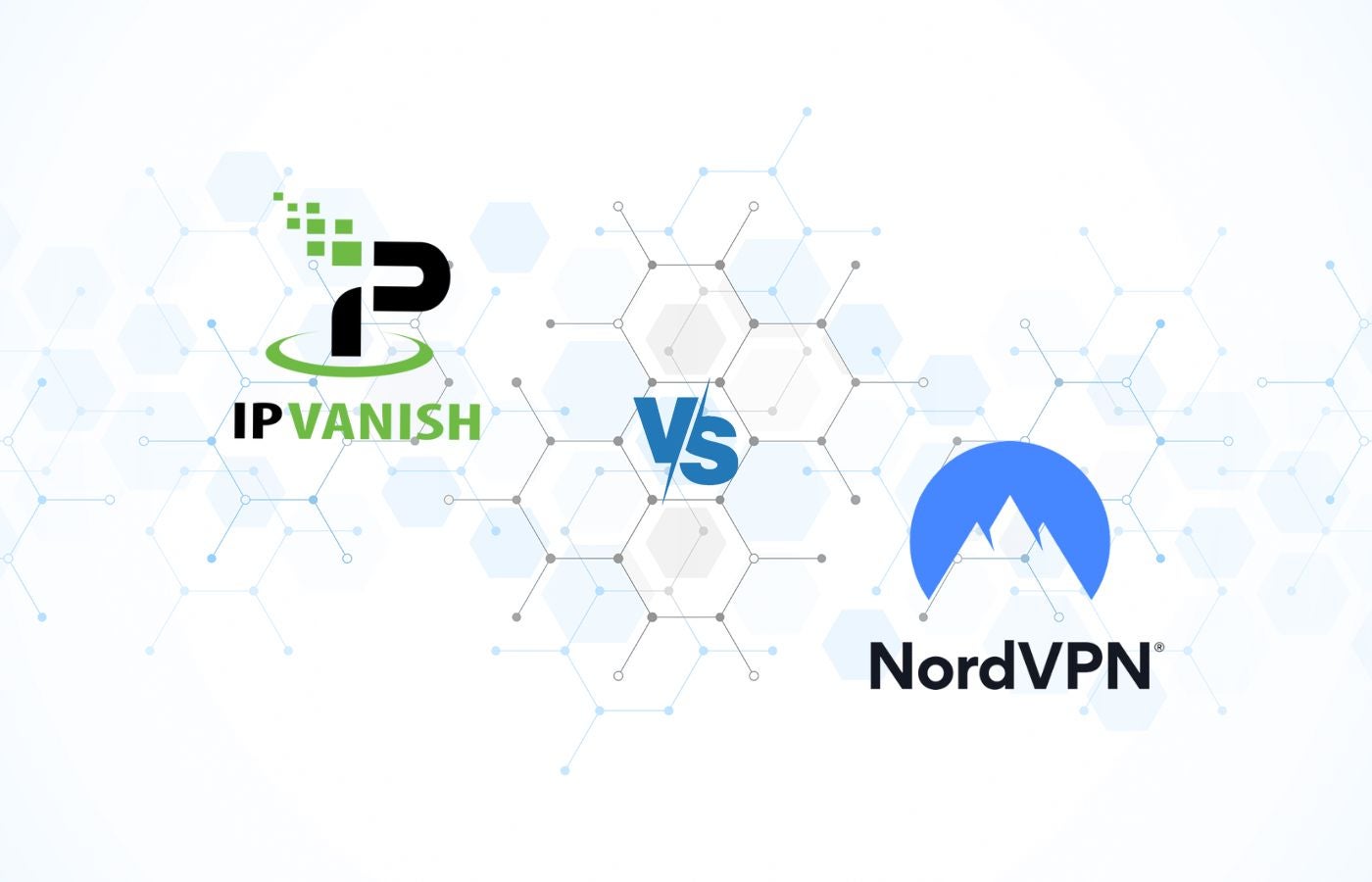NordVPN has established itself as one of the go-to VPNs in the market today. It offers strong security, reliable VPN speeds and an overall polished user experience.
IPVanish, on the other hand, provides a decent VPN package with its unlimited simultaneous device connections, affordable starting price and solid real-world speeds.
SEE: NordVPN vs ExpressVPN: Which VPN Is Best? (TechRepublic)
Can IPVanish surpass NordVPN’s security supremacy? In this article, we find out which VPN is best for you and your organization.
- IPVanish: Best for users looking for an affordable VPN that covers multiple devices without an additional subscription
- NordVPN: Best for most businesses and individuals looking for an all-around VPN with top-tier speed and security features
Featured Partners TechRepublic is able to offer our services for free because some vendors may pay us for web traffic or other sales opportunities. Our mission is to help technology buyers make better purchasing decisions, so we provide you with information for all vendors — even those that don’t pay us.
PureVPN vs NordVPN: Comparison
IPVanish vs NordVPN: Pricing
If we compare both VPNs’ starting prices, IPVanish’s annual plan at $2.79 per month is a cost-effective pick over NordVPN’s equivalent Basic plan at $4.99 per month. What NordVPN has over IPVanish, however, is a more extensive server network and feature set.
IPVanish pricing
IPVanish offers fairly straightforward pricing, with three plans divided by contract length. Below is a summary of each plan’s price:
- Monthly plan: $10.99 per month.
- 1-year plan: $2.79 per month.
- 2-year plan: $2.19 per month.
It also offers a seven-day free trial that’s accessible either through the Google Play Store or Apple App Store. While the initial sign up is via mobile, I like how IPVanish lets you access their desktop application once you’ve availed of their free trial.
If you want to learn more, read our full IPVanish review here.
NordVPN pricing
Meanwhile, NordVPN divides its paid tiers into three: Basic, Plus and Ultimate. NordVPN offers feature upgrades as you move up to their Ultimate plan — with all three subscription tiers having options for a monthly, annual and two-year subscription.
Like IPVanish, NordVPN offers a seven-day free trial but only through its Android application. While its desktop app is accessible after availing the mobile free trial, I do wish Nord gave an option to Apple users as well.
If you want to learn more, you can read my full NordVPN review.
IPVanish vs NordVPN: Feature comparison
Security protocols and encryption
Winner: Tie
If we take a look at both VPN’s tunneling protocols, they both come with the requisite protocols we want in a modern VPN solution. IPVanish gives users the option between OpenVPN, IKEv2, WireGuard and IPSec.
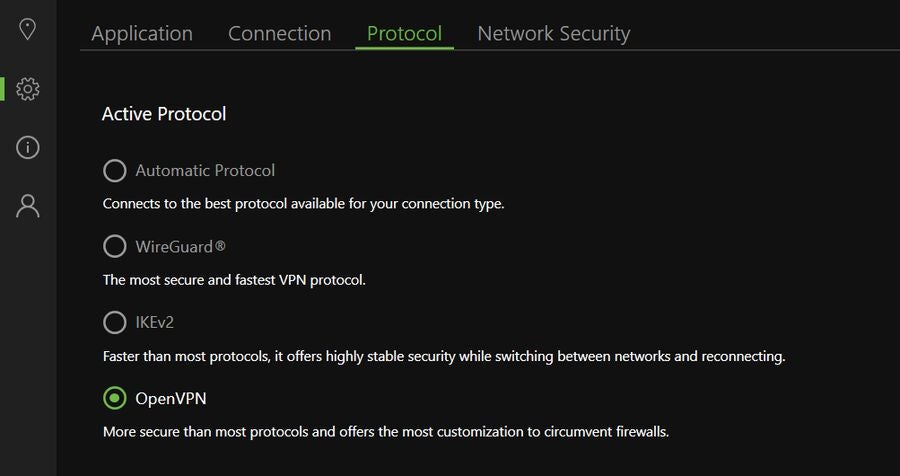
On the flipside, NordVPN comes with OpenVPN and NordLynx — their proprietary protocol based on WireGuard. Whichever solution you choose, you’ll be getting protocols that can accommodate both speed and security.
SEE: Surfshark vs NordVPN: Which VPN Is Better in 2024? (TechRepublic)
In terms of encryption algorithms, both VPNs get good marks from me. I’m happy to report that both IPVanish and NordVPN are protected with AES-256 encryption — widely recognized as the most secure encryption algorithm available today.
At least with regard to protocols and encryption, IPVanish and NordVPN are tied.
VPN server network and locations
Winner: NordVPN
When it comes to their respective server networks, NordVPN comes out on top. NordVPN currently offers 6,400+ servers across 111 countries as of July 2024. This is above average both in terms of the number of servers and location spread, with VPNs usually having 3,000-4,000 servers across around 70 locations.
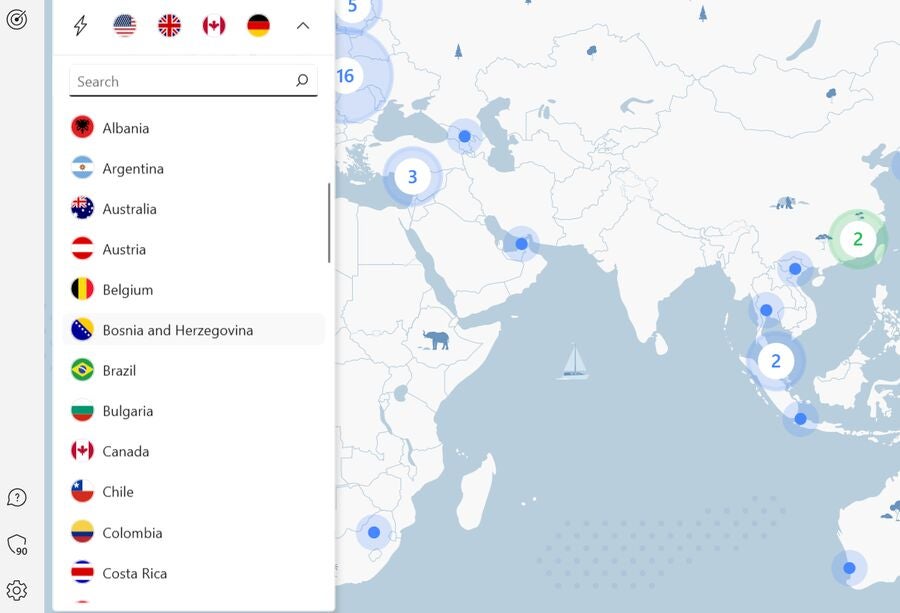
IPVanish’s server suite, on the other hand, provides access to 2,400+ servers spread across 90+ locations. IPVanish’s location spread is decent, but its number of servers is significantly smaller than that of NordVPN.
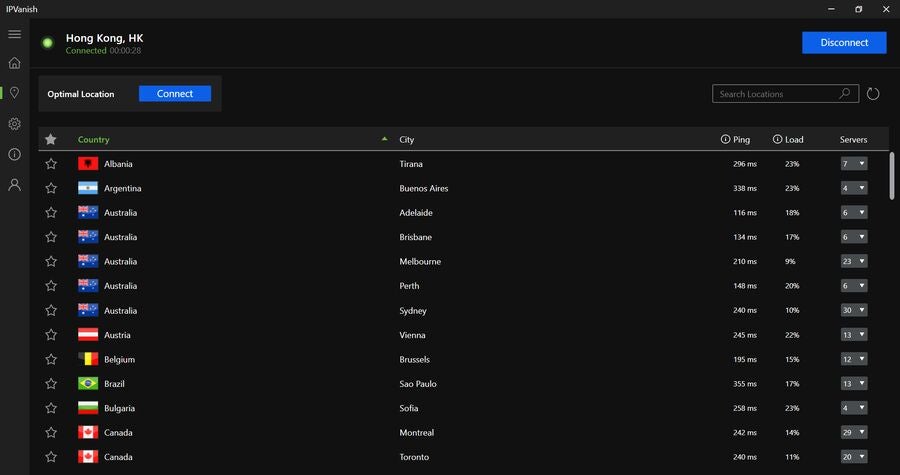
While having more servers doesn’t automatically make a VPN’s server fleet better, I find it a definite plus to have a more extensive server network. This is because more server options will let users select servers closer to their actual location — enabling them to get better speeds and more reliable connectivity.
SEE: Is a VPN Really Worth It in 2024? (TechRepublic)
More servers also allow users to quickly change connections if one server is experiencing a high level of traffic. Just looking at server count, NordVPN has more than double the number of servers that IPVanish has.
NordVPN’s broader country spread is another significant advantage as well. With 111 countries to choose from compared to IPVanish’s 90+ locations, NordVPN is going to benefit users looking for a VPN for unblocking region-locked online content.
Third-party audits and track record
Winner: NordVPN
When we look at third-party testing and security record, I have to give NordVPN the win. As of June 2024, NordVPN has undergone four independent security audits — confirming their no-logs policy to be accurate. The most recent of which was conducted at the end of 2023. This ensures end-users that they in fact do not store or record any user’s browsing data.
On the opposite end, IPVanish’s history is a bit more complicated. In 2016, under different ownership, IPVanish allegedly handed user logs to the United States Department of Homeland Security to track down a child pornography suspect. This was despite claiming to have a strict no logs policy at the time.
Since then, IPVanish was acquired by new ownership in 2017 and has since stated they are a no-logs VPN. They’ve also passed a third-party audit by Leviathan, confirming it to be a no-logs service. Unfortunately, this audit was back in 2022.
While I believe IPVanish seems to be a safer option now than where it was back in 2016, NordVPN gains the advantage with no logging incidents so far and having the more recent third-party audit completed.
Performance and speed
Winner: NordVPN
For performance, NordVPN gets the slight edge over IPVanish. I found both VPNs to be fast and reliable performers with my personal workflow as a writer. Concretely, this is me connected to a VPN server while doing things like doing research on multiple tabs, using Google Docs and Google Drive, attending a few video meetings, among other things.
Where NordVPN gets the win is with speed test results. For downloads, NordVPN only recorded a 5.8% decrease compared to my internet service provider, while IPVanish scored an equally fast 7.01% decrease for downloads as well.
SEE: 4 Best Free VPNs for 2024 (TechRepublic)
Uploads is where NordVPN gets the advantage, as it recorded a 16.2% decrease in speed. Meanwhile, IPVanish had a significant 89.02% decrease in upload speed compared to my ISP.
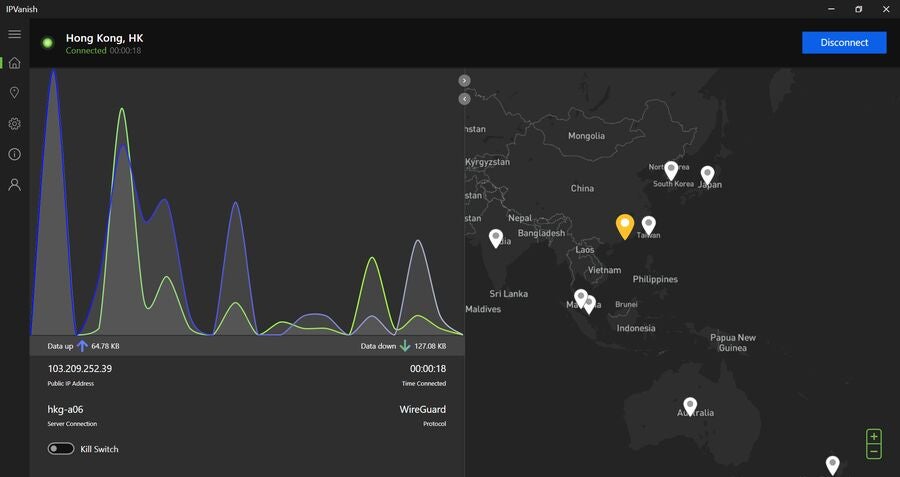
To be fair, I didn’t encounter any noticeable lag while using IPVanish with my day-to-day tasks. But if your business or workflow requires doing a ton of heavy uploads, the speed test results show that NordVPN will be the better choice.
Standout security features
Winner: NordVPN
NordVPN is the better pick if you’re looking for extra security features on top of a VPN. It offers threat protection against malware and intrusive trackers; a dark web monitor to track leaked credentials; and the ability to create private networks for file-sharing.
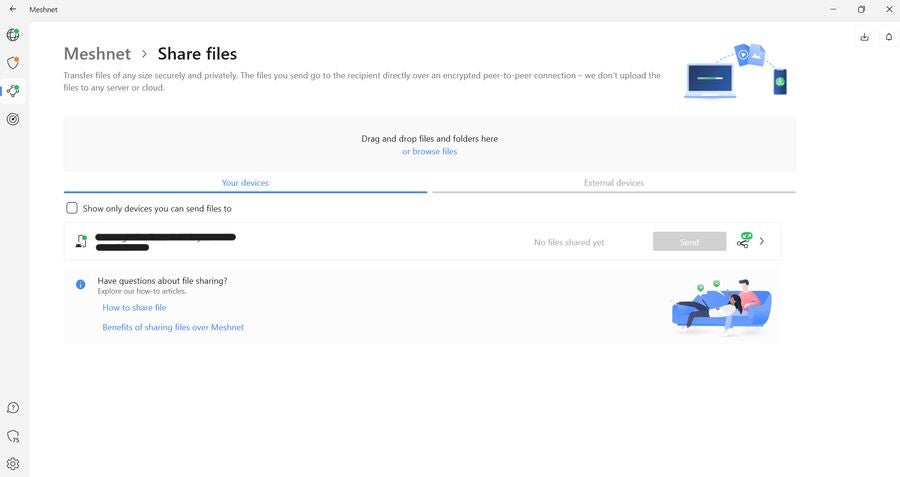
I also like how NordVPN integrates security capabilities within its VPN servers as well. It has a double VPN feature that changes user IP addresses twice and obfuscated servers that can mask VPN use for when you need to use a VPN in a restricted area.
SEE: How to Start a Career in Cybersecurity (TechRepublic Premium)
In fairness to IPVanish, it likewise carries nifty security features like built-in threat protection that blocks ads and trackers; a kill switch to handle dropped VPN connections and split tunneling for manual routing of traffic to the VPN or your ISP. However, these same security features are available on NordVPN as well.
So if you’re looking for a VPN with additional security capabilities, I highly recommend going with NordVPN over IPVanish.
Ease of use and design
Winner: NordVPN
If we take a look at each in-app experience and user interface, I have to give it to NordVPN. NordVPN uses a modern and easy-to-use interface that smartly organizes all its features in an easily digestible manner.
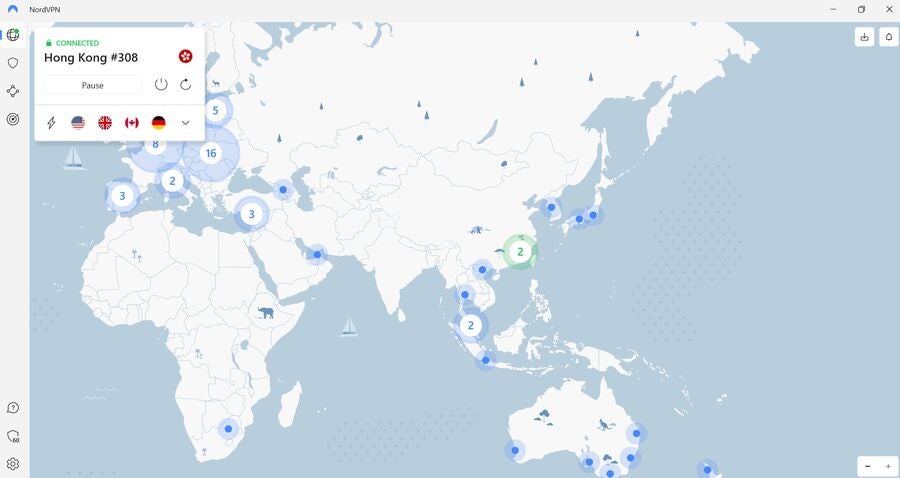
Its desktop application feels polished and I encountered zero issues when activating features or establishing connections.
If we take a look at IPVanish, we get a similar, ease-to-understand desktop interface. I had no trouble using their application and common settings/menus were where I expected them to be.
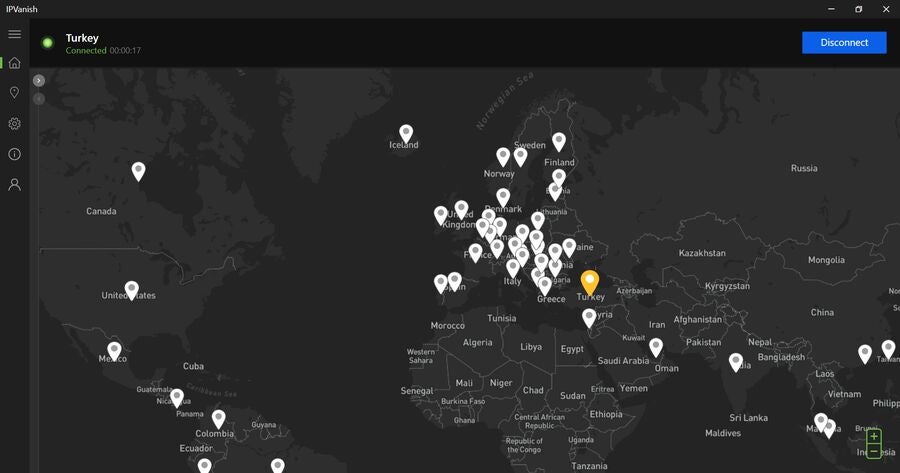
Everything worked as advertised, with no crashes or lag recorded during my testing. That being said, I have to mention that IPVanish’s Windows application looks dated compared to the competition. Their UI sort of reminds me from software in the 2010s — which is a shame since the overall app experience was pleasant.
Either way, both VPN applications were intuitive and easy to use. I just prefer NordVPN due to its more polished and modern-looking design over IPVanish’s bare-bones UI.
Simultaneous device connections
Winner: IPVanish
For device connections, IPVanish gets the advantage as it allows for an unlimited number of simultaneous device connections at any given time.
This is in contrast to NordVPN, which caps the maximum number of simultaneous device connections to 10 devices.Of the VPNs that don’t allow unlimited connections, Nord’s 10-device max is on the upper limit of allowable connections — with other VPNs hovering between 5-8 connections.
In this round-up, however, IPVanish’s unlimited device limit is a significant value add, especially for users that use a number of devices for their business or personal use. It’s also big considering IPVanish’s starting plan is more affordable than NordVPN’s equivalent subscription.
IPVanish pros and cons
Pros
- Unlimited simultaneous device connections.
- Annual plan is half the price of NordVPN’s equivalent option.
- Fast real-world VPN speeds.
- 24/7 live chat support.
Cons
- Dated desktop app design.
- Logging incident under previous ownership.
NordVPN pros and cons
Pros
- Larger server network across 111 countries.
- Bundle of extra security capabilities.
- Polished desktop application.
- More recent security audit.
Cons
- On the expensive end.
- Only allows for 10 device connections.
Should your organization use IPVanish or NordVPN?
For me, it’s clear that NordVPN is the smarter choice for most organizations and businesses. It simply offers more value for money with its extensive security feature set, larger server network and better-designed desktop application.
NordVPN also showed faster performance in speed testing and offers consistent third-party testing of its no logs policy.
While this was under previous ownership, IPVanish’s logging incident in 2016 is a red flag that’s hard to ignore. In a world where other VPNs don’t have such logging incidents, reports of handing logs off while having a no-logs policy are not where you want to be. It’s such a shame, too, as IPVanish offers decent value with its unlimited simultaneous device connections and solid speed.
Overall, though, I think NordVPN’s all-around VPN solution definitely warrants the more expensive price tag. There’s a reason why it’s considered one of the best VPNs available today.
Methodology
My match-up of IPVanish and NordVPN involved real-world analysis of both VPNs and a detailed evaluation of each VPN’s features, value and performance.
To assess each product, both VPNs were scored on everything from their server networks to their pricing. In particular, I took into account five main pillars, each having corresponding weights:
- Pricing (20%).
- Core VPN features (30%).
- Ease of use (15%).
- Customer support (30%).
- Expert analysis (5%).
I also considered real-world user testimonials and reputable reviews to round out my final recommendations for both IPVanish and NordVPN.
For speed and performance, I tested both VPNs on my personal Windows computer and ran them through Ookla’s public Speedtest. Finally, I thought about which types of individuals or businesses would best benefit from each VPN.
